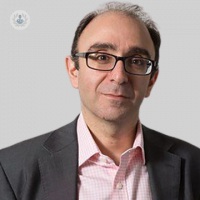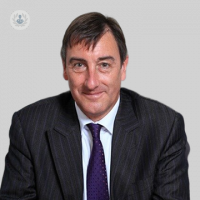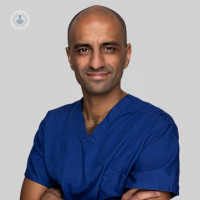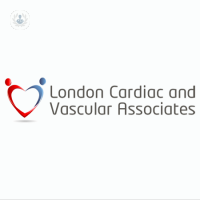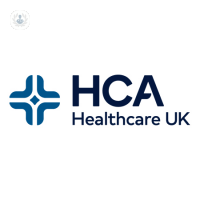What is tachycardia?
Tachycardia (sometimes referred to as “tachyarrhythmia” is when the heart beats faster than the normal resting rate. Tachycardia is expected in certain situations, such as while exercising or due to fear. However, abnormal tachycardia can be a symptom of a number of conditions or an effect of certain substances (or withdrawal from certain substances) on the heart.
Abnormal tachycardia can be divided into:
Supraventricular tachycardia can be further sub-divided into atrial fibrillation, paroxysmal supraventricular tachycardia (PSVT), atrial flutter, and Wolff–Parkinson–White syndrome.
Symptoms of tachycardia
Tachycardia is itself a symptom rather than a diagnosis. It is defined as a heart rate above the normal resting rate. Resting heart rates vary from person to person; however, in most healthy adults, tachycardia is considered to be when the heart rate rises over 100 beats per minute.
Other tachycardia symptoms include:
- Sweating
- Chest pain
- Palpitations
- Shortness of breath
- Feeling faint
Medical tests to diagnose tachycardia
An electrocardiogram (ECG) is used to diagnose the type of tachycardia.
What are the causes of tachycardia?
There are many causes of tachycardia, including:
- Alcohol
- Nicotine
- Drugs, including cannabis, cocaine, and amphetamines
- Withdrawal from addictive substances
- Infections
- Fever
- Hypoglycaemia
- Hyperthyroidism
- Atrial flutter
- Anxiety
- Wolff-Parkinson-White syndrome
- Dysautonomia
Many of the conditions that can cause abnormal tachycardia involve problems with the electrical signals that control the heart.
Treatments for tachycardia
Treatment for abnormal tachycardia depends on the cause. Medication may be prescribed to control episodes of tachycardia. In other cases, the patient may undergo cardioversion (a small electric shock to restore normal heart rhythm) or cardiac ablation (in which thin tubes are passed through blood vessels to the heart to permanently correct the problem).
Which type of specialist treats tachycardia?
Cardiologists diagnose the cause of abnormal tachycardia and treat causes related to the heart.
05-11-2019 02-05-2023Тахикардия
What is tachycardia?
Tachycardia (sometimes referred to as “tachyarrhythmia” is when the heart beats faster than the normal resting rate. Tachycardia is expected in certain situations, such as while exercising or due to fear. However, abnormal tachycardia can be a symptom of a number of conditions or an effect of certain substances (or withdrawal from certain substances) on the heart.
Abnormal tachycardia can be divided into:
Supraventricular tachycardia can be further sub-divided into atrial fibrillation, paroxysmal supraventricular tachycardia (PSVT), atrial flutter, and Wolff–Parkinson–White syndrome.
Symptoms of tachycardia
Tachycardia is itself a symptom rather than a diagnosis. It is defined as a heart rate above the normal resting rate. Resting heart rates vary from person to person; however, in most healthy adults, tachycardia is considered to be when the heart rate rises over 100 beats per minute.
Other tachycardia symptoms include:
- Sweating
- Chest pain
- Palpitations
- Shortness of breath
- Feeling faint
Medical tests to diagnose tachycardia
An electrocardiogram (ECG) is used to diagnose the type of tachycardia.
What are the causes of tachycardia?
There are many causes of tachycardia, including:
- Alcohol
- Nicotine
- Drugs, including cannabis, cocaine, and amphetamines
- Withdrawal from addictive substances
- Infections
- Fever
- Hypoglycaemia
- Hyperthyroidism
- Atrial flutter
- Anxiety
- Wolff-Parkinson-White syndrome
- Dysautonomia
Many of the conditions that can cause abnormal tachycardia involve problems with the electrical signals that control the heart.
Treatments for tachycardia
Treatment for abnormal tachycardia depends on the cause. Medication may be prescribed to control episodes of tachycardia. In other cases, the patient may undergo cardioversion (a small electric shock to restore normal heart rhythm) or cardiac ablation (in which thin tubes are passed through blood vessels to the heart to permanently correct the problem).
Which type of specialist treats tachycardia?
Cardiologists diagnose the cause of abnormal tachycardia and treat causes related to the heart.
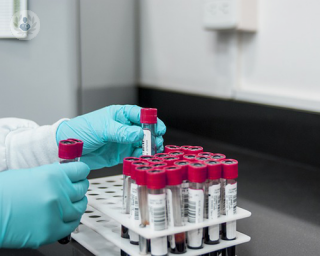

Ask an expert: What are the signs and symptoms of lupus?
Por Dr Vinay Shivamurthy
2024-11-26
Highly respected paediatric rheumatologist Dr Vinay Shivamurthy reveals how lupus, an auto-immune condition, can cause a wide range of symptoms and affect various of the body's organ systems. The leading specialist also discusses diagnosis and treatment. подробнее
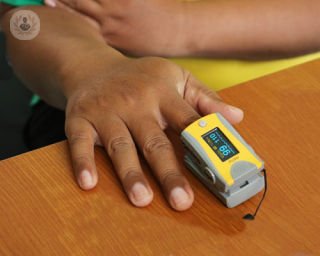

How serious is supraventricular tachycardia?
Por Dr Anthony Li
2024-11-26
Highly esteemed consultant cardiologist and cardiac electrophysiologist Dr Anthony Li gives an expert guide to supraventricular tachycardia, its effects on the heart and the available treatment options. подробнее
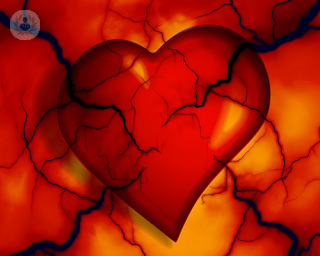

Why is my heart beating so fast?
Por Dr Narbeh Melikian
2024-11-26
In one of our latest articles here, distinguished London-based consultant interventional cardiologist, Dr Narbeh Melikian, details what tachycardia is, what the main associated symptoms are, as well as revealing whether or not the heartbeat-affecting condition is life-threatening. подробнее
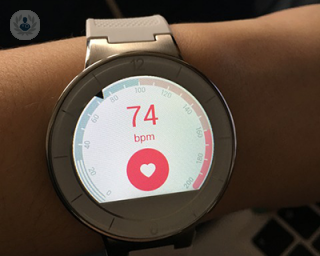

Palpitations explained: Expert insight from a leading specialist
Por Professor Mark Gallagher
2024-11-25
Palpitations are common and can understandably cause concern about heart health. Dr Mark Gallagher, a respected consultant cardiologist, clarifies in this guide that, in fact, palpitations can stem from various factors and aren't solely tied to heart function. The article also explores how our body interprets heart rate changes. подробнее
Врачи-специалисты в области Тахикардия

London Cardiac & Vascular Associates
London Cardiac & Vascular Associates
London Bridge Hospital, 27 Tooley St, SE1 2PR
No existe teléfono en el centro.
Si haces uso de este teléfono facilitado por TOP DOCTORS nos autorizas al tratamiento de tu teléfono para fines estadísticos y comerciales. Para más información, lee nuestra Политика конфиденциальности
Top Doctors

OneWelbeck Heart Health
OneWelbeck Heart Health
Floor 3, 1 Welbeck St, London, W1G 0AR
No existe teléfono en el centro.
Si haces uso de este teléfono facilitado por TOP DOCTORS nos autorizas al tratamiento de tu teléfono para fines estadísticos y comerciales. Para más información, lee nuestra Политика конфиденциальности
Top Doctors

London Bridge Hospital - part of HCA Healthcare
London Bridge Hospital - part of HCA Healthcare
27 Tooley St
No existe teléfono en el centro.
Si haces uso de este teléfono facilitado por TOP DOCTORS nos autorizas al tratamiento de tu teléfono para fines estadísticos y comerciales. Para más información, lee nuestra Политика конфиденциальности
Top Doctors
-
London Cardiac & Vascular Associates
London Bridge Hospital, 27 Tooley St, SE1 2PR, Central LondonЭксперт в области :
- Кардиология
-
OneWelbeck Heart Health
Floor 3, 1 Welbeck St, London, W1G 0AR, W1G Marylebone LondonЭксперт в области :
- Клинический анализ
- аритмия
- Сердцебиение
-
London Bridge Hospital - part of HCA Healthcare
27 Tooley St, Central LondonЭксперт в области :
- 24 -часовое обслуживание
- Кардиология
- Операция с минимальным доступом (операция с замочной скважиной)
- ортопедическая хирургия
- Сердечно-сосудистые заболевания
- гастроэнтерология
- See more
